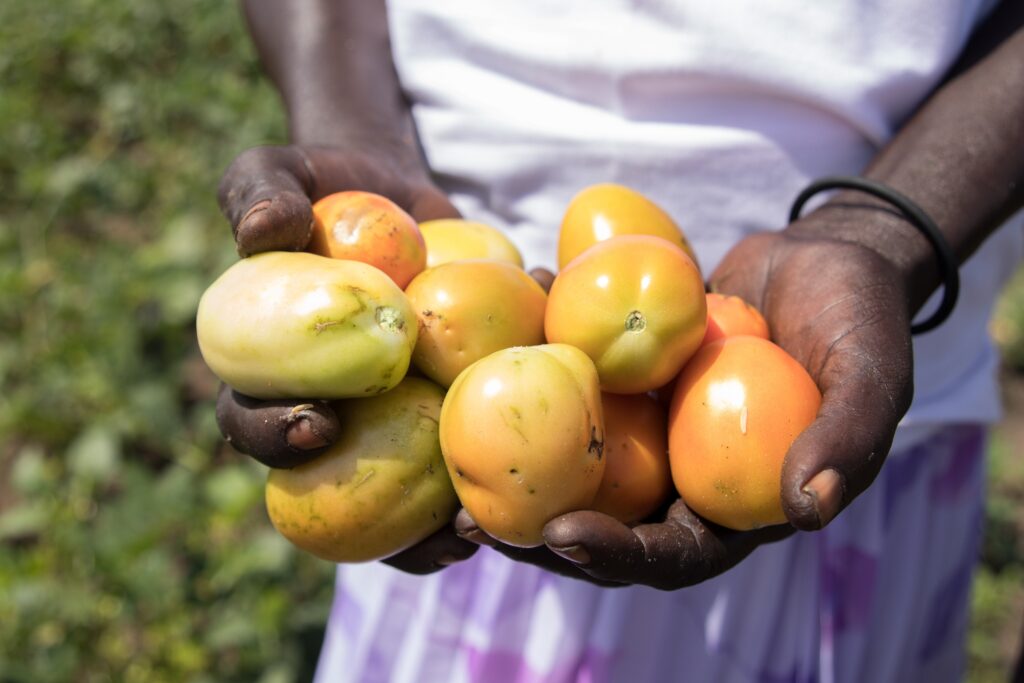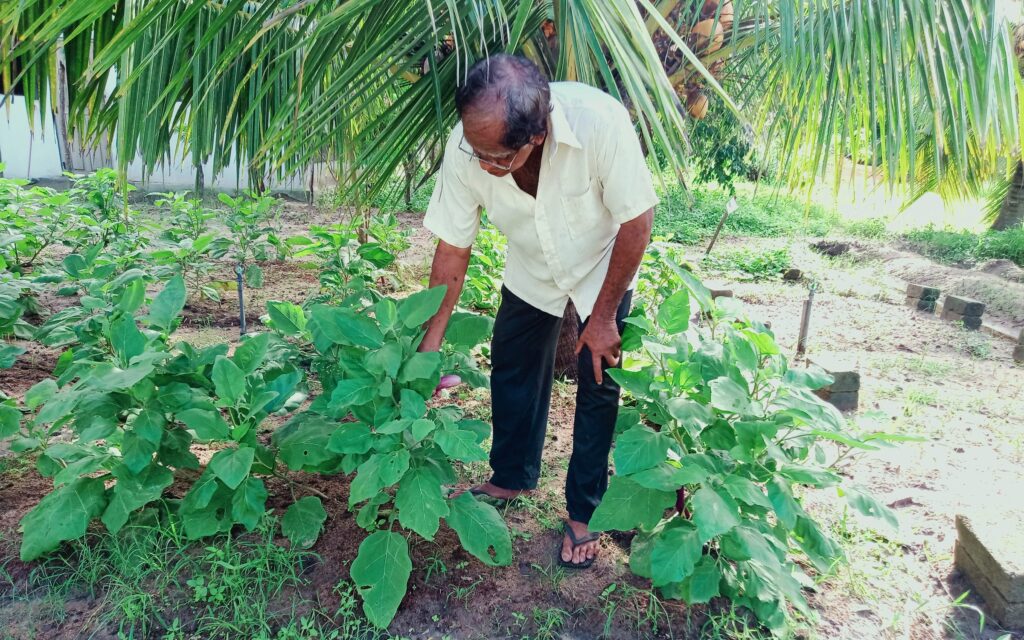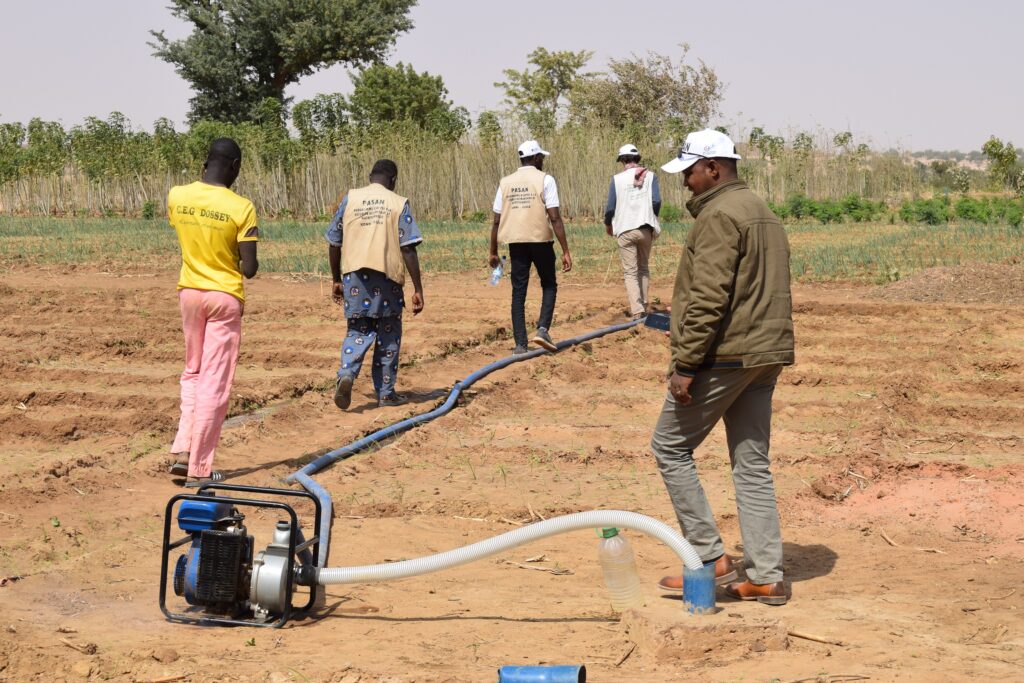Kitchen gardens give good results

Through our food security projects in Africa, Asia and Latin America, we have contributed to better living conditions for 406,818 people over the past five years.
We live in a challenging time characterized by three crises - war, climate change and economic downturns. Poverty is increasing and forcing more and more people into hunger. This makes our work more important than ever.
The aim of the projects has been to help small-scale farmers and their families out of poverty and hunger by enabling them to produce more food, sell their produce for a better price on the market and strengthen their resilience when drought, floods and conflict strike.
The projects have been implemented in eight of our partner countries - Zambia, Uganda, DR Congo, Mali, Niger, Nigeria, Sri Lanka and Colombia.
Very good results have been achieved, despite challenging contexts. In countries where poverty and hunger have increased dramatically in recent years, participants in our projects have not only been spared, but have managed to thrive. They are eating more and more nutritious meals and their incomes have increased.
Tale Hungnes, International Manager at Caritas Norway
Better living conditions in times of crisis
One of the projects has been implemented in Sri Lanka, which has undergone its worst economic crisis. Underinvestment in local food production and dependence on imports are two of the triggers.
In the absence of currency, an import ban on artificial fertilizers was introduced overnight. Farmers were asked to use local organic fertilizer, almost overnight and without training, which contributed to extensive crop failure and food shortages in a country that has all the prerequisites to feed its own population. As a result, food had to be imported, and food inflation skyrocketed.
The economic crisis means that many people are struggling to make a living as a result of fewer casual jobs. At the same time, the cost of living has increased significantly. Even basic items such as rice and legumes have become too expensive for many. This is forcing people to eat less and a serious hunger crisis is looming.
- Despite major challenges, through our programs on Øya, we have helped to improve the living conditions of 28,600 families, or 142,000 people to be precise. On average, 95 percent of participants were food insecure when the project started in 2018. Five years later, the figure has been reduced to 14 percent. During the same period, the number of preschool children with access to nutritious food increased from 25 to 83 percent.
Tale Hungnes, International Manager at Caritas Norway

Kitchen gardens and self-help groups
An important success factor has been the opportunity to grow food in their own gardens and kitchen gardens. The same applies to the establishment of 2,838 self-help groups, which have functioned as savings and loan associations. This in turn has given participants better access to credit, the opportunity to invest in production and interest income.
The kitchen gardens are found in all our projects and are a major contributor to the good results we have achieved. These gardens, which are mainly run by women, have produced enough nutritious food to feed the whole family and also produced a surplus that could be sold.
By using low-tech irrigation systems, they have not been affected by drought and have been protected from flooding, as many others have been over the past five years. The kitchen gardens have also given the women their own income and greater financial freedom, which they have invested in their children and their schooling.
Tale Hungnes, International Manager at Caritas Norway

Results from 2018 - 2023:
- 27 percent reduction in malnutrition in children under five.
- Increase in school attendance of 16 percent.
- 46 percent reduction in food insecurity.
- The number of households that have gone from two to three meals per day has increased by 62 percent.
- The number of households with a varied diet has increased by 46 percent.
- 79 percent of households have increased their income and 92 percent have access to credit.
- 83 percent of households have adopted climate-smart agricultural techniques, which has contributed to far more sustainable food production.